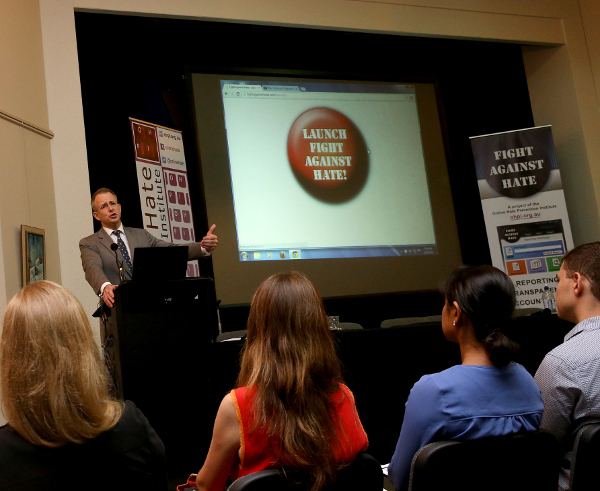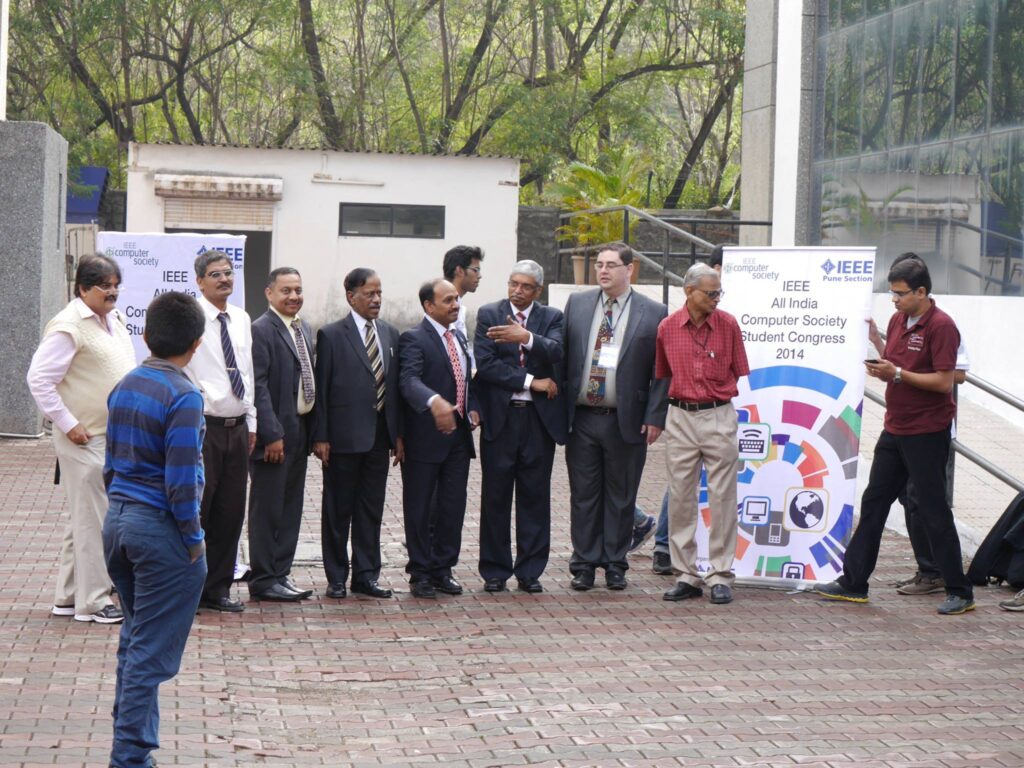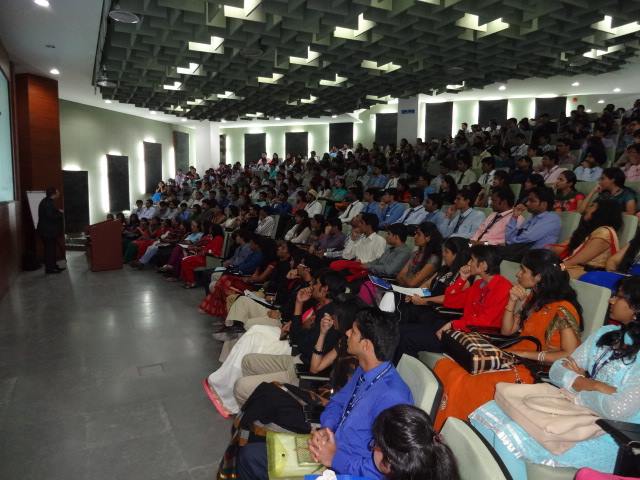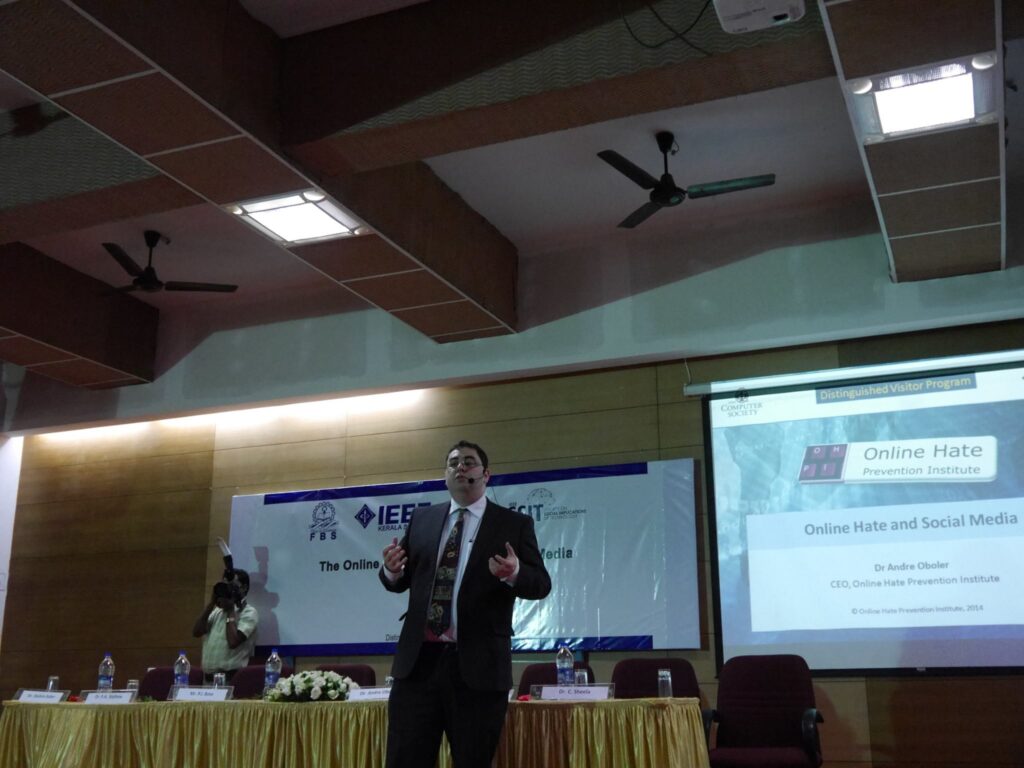The following article by OHPI’s CEO, Dr Andre Oboler, was originally published in the IEEE SSIT Newsletter: Volume 13. Issue 1. Winter 2015. Pictures have been added.
Social media can cause problems when it is misused by individuals, employers, platform providers or governments. During the course of 2014 work in this area has gained significant interest with experts and the public alike. I was honoured to be appointed a Distinguished Visitor for the IEEE Computer earlier this year. Most of my talks are at the nexus of the Computer Society and SSIT, and the appointment has allowed me to present across Australia, Malaysia and India.
My December began with the launch of a new online reporting tool called Fight Against Hate. The tool, developed by the Online Hate Prevention Institute, was launched the evening before International Human Rights Day. As reported in the media, it aims to provide transparency over the way social media companies respond to user reports about terms of service breaches, such as hate speech, cyber-bullying, or threats of violence. The tools make it possible to see how long it takes to remove content, and how many report do not result in removals. The strong interest in the launch, which included support the Australian Chapter of SSIT and 35 other charity and community organisations, demonstrates a demand for greater action to tackle online hate and cyber-bullying.
Following the launch, details of the software were presented in a paper at the IEEE Conference on e-Learning, e-Management, and e-Services (IC3e 2014). Days later the problem, and the software, were presented in a keynote address at INDICON, a major conference run by the IEEE India Council. The keynote was warmly welcomed by organisers, attendees and the media. The day after INDICON, the All India Computer Society Student Congress received an extended version of the talk, focused on the ethical responsibility of IEEE members to improve public understanding of the consequences of technology. The concept of acting in the public interest, embedded in the joint IEEE and ACM code of ethics for software engineers, was considered.
In total the India trip stretched over 11 days and involved 14 talks in various parts of the country. Many I spoke to had not considered the impact of social media technology, or the need for independent experts to engage in this domain. The interest and engagement of our students gives me hope that future generations of IEEE members will be working for a bright future for humanity and not just progress for its own sake.
Sometimes it is easier to focus on the technical details and leave the question of consequences to others. SSIT, often working in partnership with other societies, plays an important role in facilitating work that helps us remain true to both our ethical commitment as members, and the IEEE’s wider goal of Advancing Technology for Humanity.




